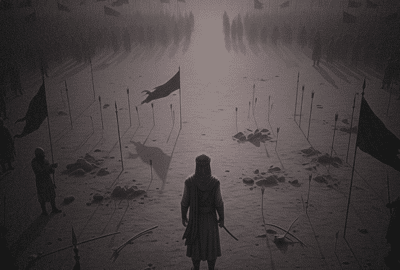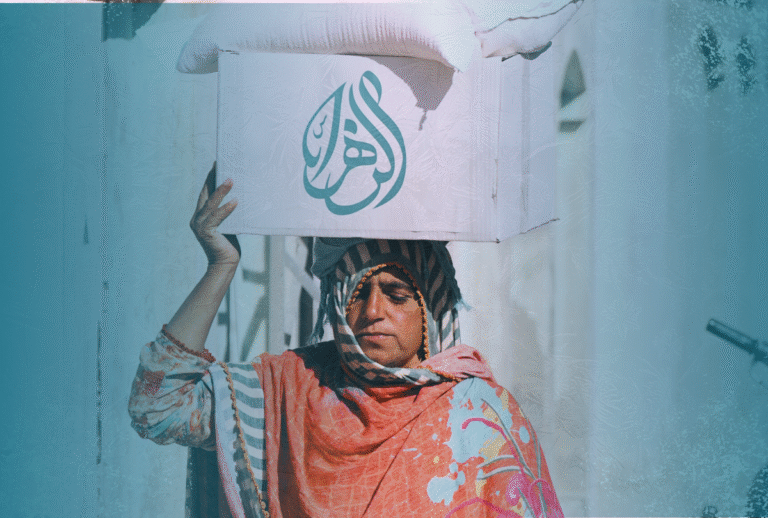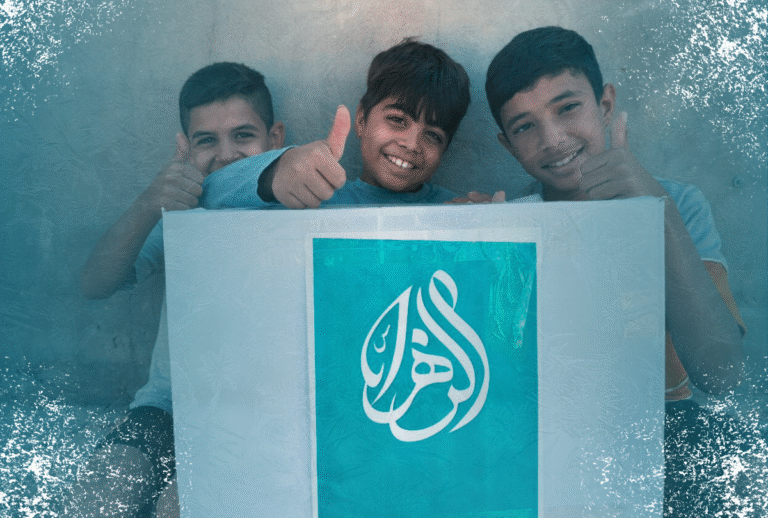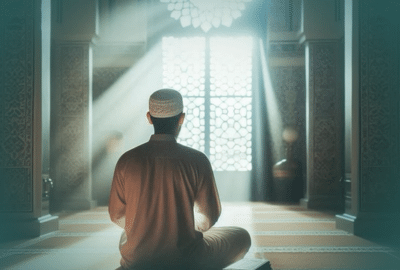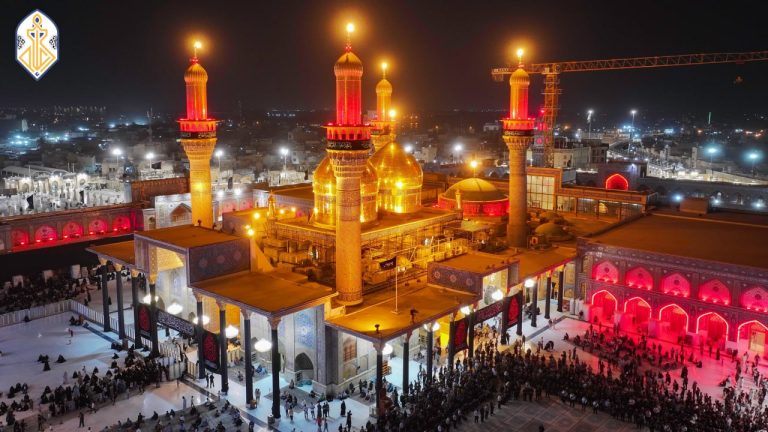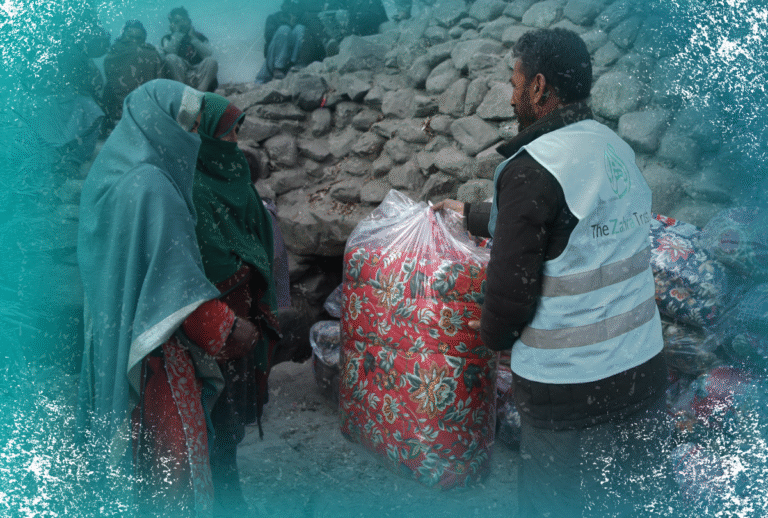“Is There No One To Help Me?”: Imam Hussain’s (as) Words Are Still Repeated Today
Imam Hussain (as) stood alone amidst the brutal fighting of the Battle of Karbala and surrounded by the martyred bodies of his companions and family.
With bloodied hands and a broken heart, he called out:
“Is there no one to help me?”
Some of his last words – before he was tragically struck down and killed. Martyred for a cause of justice and dignity.
His words were not just a plea. It was a call to conscience. Not just for those around him on that tragic day, but for every generation that followed.
More Than a Historical Moment
Imam Hussain’s words are still echoing today. Not only during majlis or during lectures relating to Muharram, but by Muslims across the world, suffering at the hands of injustice and oppression.
Muslims today still whisper the words, “Is there no one to help me?” in regions of conflict, in refugee camps, in broken homes plagued by poverty, and in forgotten corners of the world where hope hangs on by a thread.
When Imam Hussain (as) asked for help, he was seeking those who would continue to stand for truth, defend dignity, and oppose injustice.
Are we answering his call? Are we answering the call of countless Muslims in need today?
Answering the Call of Imam Hussain (as) Today
In a world still plagued by oppression, silence in the face of injustice is a form of betrayal.
Every time we see the innocent persecuted, the powerful go unchecked, and truth silenced, Imam Hussain’s (as) cry echoes again:
“Is there no one to help me?”
It’s heard in war zones. In refugee camps. In broken legal systems. In corrupt institutions. And it’s asking us: Will you be among those who answer?
You don’t need to be on a battlefield to answer the call of Imam Hussain (as).
The Holy Quran states:
يَٰٓأَيُّهَا ٱلَّذِينَ ءَامَنُواْ كُونُواْ قَوَّٰمِينَ بِٱلۡقِسۡطِ شُهَدَآءَ لِلَّهِ وَلَوۡ عَلَىٰٓ أَنفُسِكُمۡ أَوِ ٱلۡوَٰلِدَيۡنِ وَٱلۡأَقۡرَبِينَۚ إِن يَكُنۡ غَنِيًّا أَوۡ فَقِيرٗا فَٱللَّهُ أَوۡلَىٰ بِهِمَاۖ فَلَا تَتَّبِعُواْ ٱلۡهَوَىٰٓ أَن تَعۡدِلُواْۚ وَإِن تَلۡوُۥٓاْ أَوۡ تُعۡرِضُواْ فَإِنَّ ٱللَّهَ كَانَ بِمَا تَعۡمَلُونَ خَبِيرٗا
“O you who believe! Be maintainers of justice and bearers of witness for the sake of Allāh, even if this testifying is against yourselves or your parents and relatives; it should not make any difference to you whether the person (for or against whom you are testifying) is rich or poor; Allāh is closest to them both. So do not follow your caprice lest you swerve from the true testimony. If you swerve or turn aside from truth, then you should know that Allāh is aware of what you do.” (Quran, 4:135)
Speak up when others stay silent. Defend those who have no voice. Support those who are most vulnerable.
Learn more about how you can support those most in need here.
From Karbala to Every Corner of the World
Imam Hussain’s message transcends time and place. That’s why millions still gather each year, not just to mourn the tragedy of the Battle of Karbala, but to recommit to his values of dignity, truth, and justice.
His cry wasn’t out of desperation – it was summoning those who truly believe.
And it’s still being asked today: “Is there no one to help me?”
What will your answer be?
Frequently Asked Questions (FAQs)
Imam Hussain’s (as) cry was not just a plea for physical support during the Battle of Karbala. It was a spiritual and moral call to anyone who stands for truth and justice. It continues to resonate today as a call for ethical courage in the face of oppression.
Imam Hussain’s (as) stand at Karbala represents resistance against tyranny, even when isolated and outnumbered. His story transcends time and speaks to anyone fighting injustice, corruption, or oppression in society. That’s why millions remember him every year, especially during Muharram.
You can answer his call by upholding justice, speaking the truth, supporting the oppressed, and acting with integrity – even when it’s difficult. Whether through activism, education, or everyday moral choices, your actions can reflect the spirit of Karbala.
Ashura, observed on the 10th of Muharram, commemorates the martyrdom of Imam Hussain (as) in 680 CE. It is a day of mourning for many Muslims, especially Shia Muslims, and serves as a reminder of sacrifice, resistance, and unwavering faith in the face of oppression.
Imam Hussain (as) is remembered not just as a historical figure, but as a universal symbol of resistance and righteousness. His legacy continues to inspire people of all backgrounds to stand up for justice, compassion, and truth.


 Donate Now
Donate Now
 Donate
Donate
